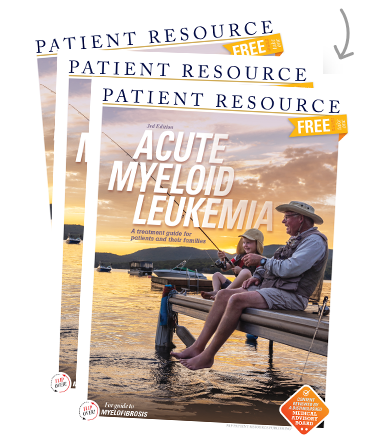Acute Myeloid Leukemia
Financial Concerns
The cost of cancer care can be overwhelming. Your attention is likely focused on understanding your diagnosis, prognosis and treatment, but it is important to also manage the costs of your care. It may help to know that you are not alone. Many resources, from oncology social workers and hospital patient services representatives to patient advocacy groups and local cancer organizations, are available to assist you.
Before you get started, know this: The professionals in these organizations work with patients every day who are facing similar situations, and they realize how expensive it is to treat cancer. Do not feel embarrassed to talk about your financial situation or to ask for assistance. They expect you to, and they are skilled at guiding you to reputable sources for answers and assistance.Understanding Cancer Costs
Cancer-related costs can be grouped into two types of expenses: medical and lifestyle. The medical expenses – including medical office visits, tests, treatments, drugs and caregiving – are the most obvious additions to your spending.
If possible, you might want to set aside extra money to enjoy special activities or trips with your family and friends to help ease the stress of this difficult time. Cancer-related expenses are a heavy burden on their own but are even more substantial when combined with the possibility that your income may be reduced if you and/or your significant other are unable to work the same number of hours during treatment.
Getting Started
Contact the financial staff at your doctor’s office for help understanding your insurance policy and out-of-pocket expenses. They may have access to programs that offer certain medications at reduced costs or options for grant support.
Next, reach out to your social worker, patient advocate or patient navigator at your medical facility. They can refer you to local organizations, advocacy groups and other nonprofit organizations that may offer assistance in a variety of categories, including child care, wigs, counseling services, legal help, wish fulfillment, transportation and lodging while traveling for treatment. The resources in this guide are additional sources.


